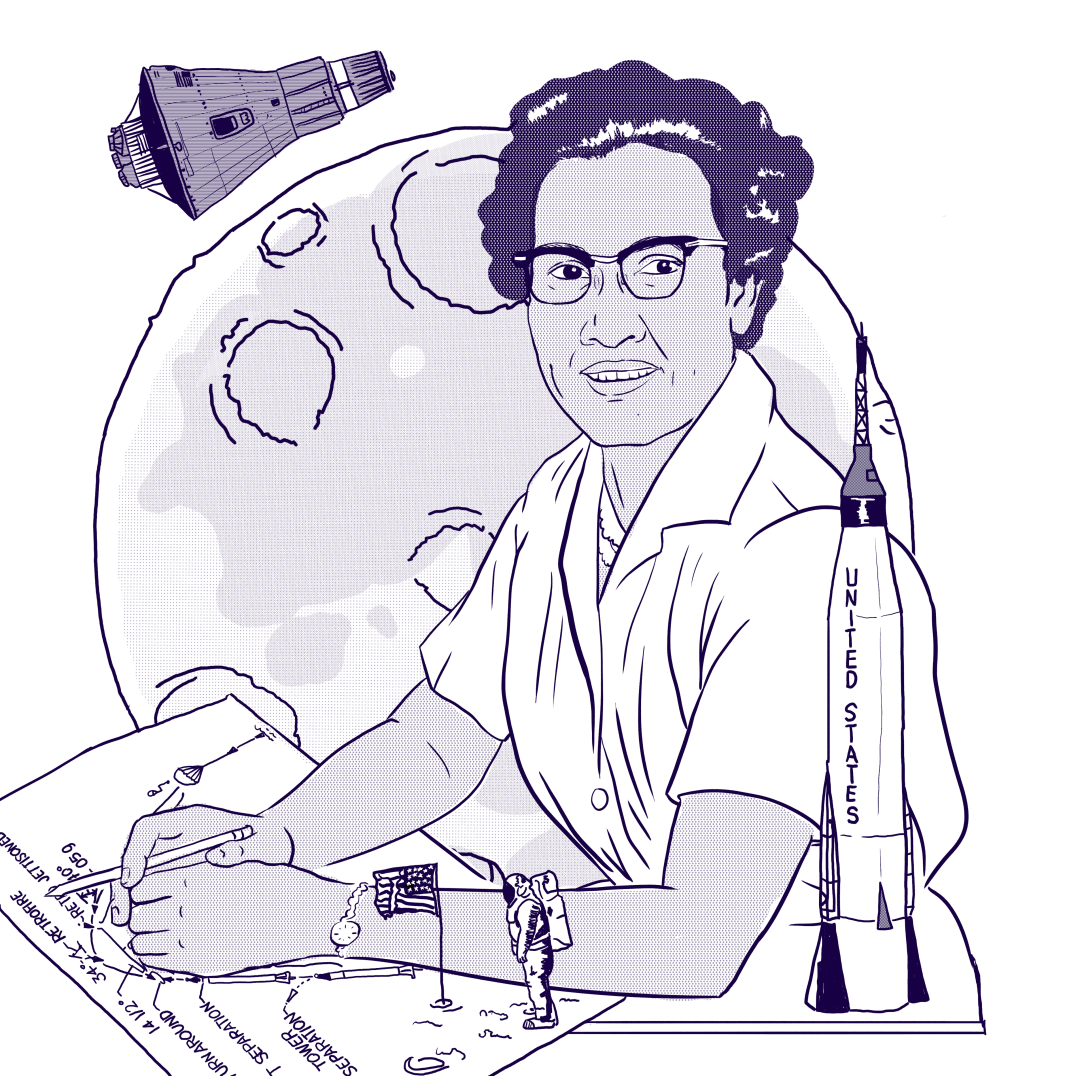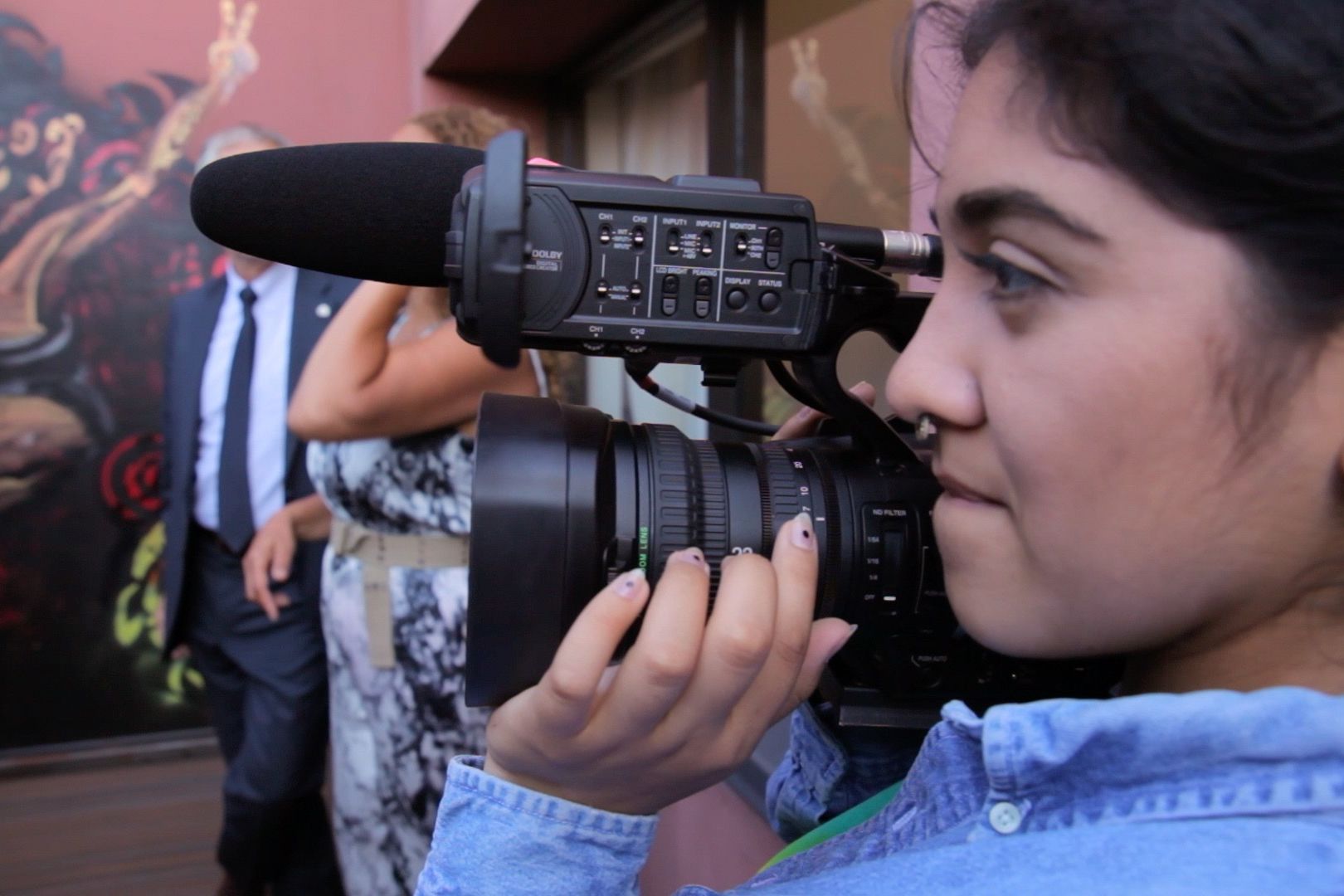What's It Like to Be a Woman in Tech in 2017?

Also on sale: a coloring book with 15 women in tech, including former NASA mathematician Katherine Johnson—currently getting the big-screen treatment in Hidden Figures.
Image: Courtesy Vox Siren
When Dominique DeGuzman worked in IT, she often found herself the only woman on an all-male team. DeGuzman, who’s queer, says her co-workers sometimes made stabs at camaraderie.
“Someone would make a comment about another female employee’s physique—that’s the most PC way I can say that—and ask me for my opinion,” says DeGuzman, now a software engineer in San Francisco. “What I really wanted to say to was: ‘You and I both like women. But I actually respect them.’”
This Friday, January 27, DeGuzman and five other women will take the Revolution Hall stage to tell their stories of working in the tech industry. (Can't be there in person? The event, Super: Women in Tech, will be live-streamed on Periscope.) It's a partnership between long-running storytelling series Back Fence PDX and “creative change agency” Vox Siren—which also helped put on a filmmaking program for girls last summer—that aims to broadcast women’s successes.
“We only hear about the plight,” says Vox Siren co-founder Zoe Piliafas. “Screw that. The story of how badass we are isn’t out there.”
To that end, organizers assembled a half-dozen women working across the tech industry, from software design to computer animation to technical marketing. Each of the storytellers, most of whom live in Portland, worked with Back Fence’s B. Frayn Masters to develop a 10-minute story. Wieden & Kennedy chipped in to help produce a coloring book with 15 women in STEM fields, including early computer programmer Ada Lovelace, experimental physicist Chien-Shiung Wu, former NASA mathematician Katherine Johnson (whose story is currently getting the big-screen treatment in Hidden Figures), and all six of Friday’s storytellers. (The book will be for sale at the event—check out some of the illustrations in the video below.)
DeGuzman, who’s given speeches about “breaking the bro code” and overcoming imposter syndrome, says such events can help make women feel less isolated. “When I first started public speaking, people would come up to me afterwards and be like, ‘Oh my god, I’m not alone. Everything you said is what happens to me on a daily basis and I’m pretending it doesn’t bother me.’ That was really important to me.”
For storyteller Brook Shelley, a Portlander who works at Turbine Labs, public platforms can also “help change the tone of what success looks like.” Shelley says her story will trace how she went from being assigned male at birth in a conservative Christian community in Texas to working in software and writing and speaking about queer and trans issues.
“If you’re a young girl and haven’t been able to see role models who look like you or talk like you or come from a similar place, it can be incredibly life-changing,” Shelley says. “Even if you’re a woman who’s been in the field for a long time but going it alone, it can be really great to see someone who’s achieving something and claiming it.”
Super: Women in Tech is at 8 p.m. Friday, January 27 at Revolution Hall. $10–17. $50 VIP.




